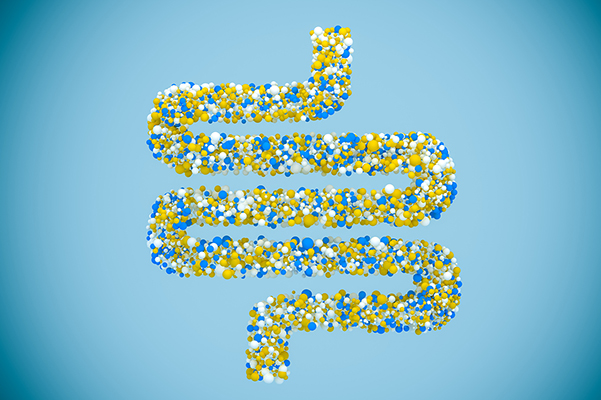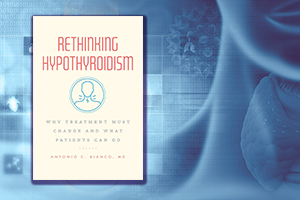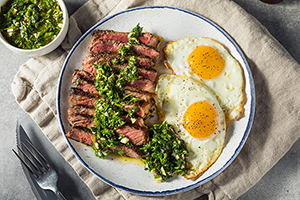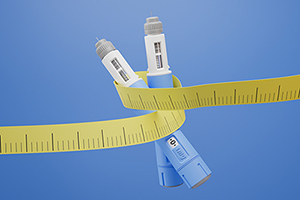



| By Dr. Ronald Hoffman

Recently the mainstream media has gone after supplements with a vengeance. Multivitamins, vitamin D, fish oil, and now probiotics have lately come into their cross-hairs. I’ve been called into damage control mode on numerous occasions lately (read my latest rebuttal to false reports claiming “probiotics cause brain fog”).
Another story is making the rounds alleging that “Probiotics are Mostly Useless and Can Actually Hurt You”. It originated in a publication that I seldom rely on as a primary source for health information—New Scientist. To give you a flavor of their science reporting, alongside the probiotic story, New Scientist features a lurid headline claiming that “The whiff of sandalwood makes the human head sprout more hair” (based on a cell culture study). If you believe that, I have a bridge to sell you.
Let’s look at the original studies on which the New Scientist probiotic article is based so as to break the story down for you.
They’re from a team at the prestigious Weizmann Institute in Israel that specializes in advanced microbiome research, and although reading these lengthy papers made my eyes glaze over, the studies are actually pretty well-designed.
In the first, researchers undertook a comprehensive cataloguing of the bacterial colonies present in the GI tracts of, first, mice, then experimental volunteers, before and after probiotic administration.
New Scientist highlights just one facet of the study: That feeding probiotics to mice and humans often doesn’t result in colonization of the intestines by the bacteria in the probiotics. Ergo, the simplistic conclusion is that “probiotics don’t work.”
I’ve actually noticed this troubling paradox in clinical practice. Many of my patients who dutifully take probiotics undergo stool tests that reveal a total absence of bifido- or lactobacillus. Yet many claim benefits such as improved stools, relief of diarrhea or constipation, less gas, bloating, even improved mood and energy.
Curious, I tested myself via several different reputable stool-profiling labs. Despite having a robust digestive system, after taking a variety of probiotics myself I scored zero on stool tests measuring bifido- or lactobacillus.
So does that mean we are all fooling ourselves? Is taking probiotics a worthless proposition, akin to spreading seeds in the Sahara desert in vain hopes of establishing a flourishing rainforest?
That’s not what the Weizmann Institute’s study says. What it does point out is that some people are “resistors”; certain factors prevent the colonization of their intestines with probiotic bacteria. It’s as if we are each equipped with a personal GI “template” that carefully regulates what microbes are permitted to flourish in our intestines.
Even so, the authors admit that, if you look carefully enough, you’ll find evidence of probiotic bacteria in many consumers of supplements. While stool tests may fail to indicate their presence, they may lurk elsewhere within the GI tract, further upstream, accessible only via endoscopy.
That’s why, in the wake of my experiences and now this study, I have less faith in the accuracy of commercially-available stool tests. These are experiencing a vogue lately as consumers seek a “report card” on their GI health.
Moreover, even when evidence of colonization by probiotics is not found, the Israeli team reports: “Nonetheless, when all probiotics-consumers were considered together, probiotics consumption led to transcriptional changes in the ileum, with 19 downregulated and 194 upregulated genes noted, many of which related to the immune system including B cells.”
That means that, whether or not probiotic bugs were detected, they seem to exert effects on the intestinal immune system. This might be consequential for inflammation, for intestinal permeability, or for overall immune system priming.
So colonization doesn’t necessary equate to efficacy.
How might probiotics help a person even if they don’t establish detectable colonies in the gut? Let me count the ways:
While this study is deliberately misrepresented in the New Scientistarticle to demonstrate that “probiotics don’t work,” its authors arrive at no such conclusion whatsoever. In fact, they explicitly state: “Our study is not aimed or powered to delineate effects, or lack thereof, of probiotics on mammalian clinical features.”
Whew, thanks for the modesty, which their journalistic colleagues apparently didn’t share!
A final point is that these findings are based on a lot of mice—but only 15 human volunteers!
Now to the next contention, which is that probiotics may do harm by delaying healing from antibiotic-associated diarrhea (AAD).
AAD is a big problem, because many users of antibiotics experience serious, debilitating watery stools; often, they fall prey to C. dificileinfections which can be life-threatening and are hard to eradicate.
Again, I can’t fault the Israeli team for lack of thorough methodology in this second study. They tested mice—and 21 human subjects—six-ways-to-Sunday, before and after broad-spectrum antibiotic administration.
What they found was that probiotics delayed the re-establishment of normal flora in both animals and humans. This is interpreted as a harmful effect because “dysbiosis”— an unbalanced microbiome—is associated with a wide range of undesirable effects. The authors speculate that the probiotics got in the way of bacteria that were trying to make a comeback.
Of interest in this study was that fecal microbial transfer (FMT)—giving patients a dose of their own pre-antibiotic “normal” stool—hastened the restoration of normal flora.
These are interesting findings and suggest that maybe someday poop pills will supersede probiotics as a means of preventing AAD.
But how do the study results square with the generally-acknowledged benefits of probiotics when given during antibiotic treatment? Numerous studies substantiate the protection afforded by probiotics.
For example, a 2012 “Practice Changer” article in the Journal of Family Practice recommended that “patients taking antibiotics also take probiotics, which have been found to be effective both for the prevention and treatment of antibiotic-associated diarrhea (AAD).” They cited as evidence a Journal of the American Medical Association systemic review and meta-analysis of randomized controlled trials in human subjects. Another trial found a reduction of 66% in C difficile-associated diarrhea in patients taking probiotics with their antibiotics.
So how are we to reconcile these results with the finding in the present study that implies probiotics interfere with recovery from antibiotics? My guess is that probiotics act as a benign placeholder—like a temporary Band-Aid—minimizing symptoms even as they delay recolonization by a patient’s native flora. Is this even a problem?
And sure enough, once again the Weizmann Institute researchers scrupulously qualify their findings with the humble disclaimer: “ . . . our study is not aimed or powered to assess the effectiveness, or lack thereof, of probiotics in ameliorating post-antibiotics clinical symptoms.”
So an alleged “harm” of probiotics might really not be so harmful at all!
I don’t fault the authors of this study so much as the click-bait journalists who tortured unwarranted conclusions from it.
Once again, in a misguided rush to “relevance,” they dumb down the intricacies of microbiome science—and poison the well for health-conscious consumers of probiotics that are overwhelmingly safe and effective.
I studied long and hard to pass several grueling qualification exams to become a licensed physician. Would that there were comparable standards for health journalists—and that they would adhere to the journalistic equivalent of the Hippocratic Oath: “First, do no harm!”
Though we think of declining estrogen as the hallmark of menopause, it's actually common for…

Up to 12 percent of Americans have ulcers at some point in life. Peptic ulcers…
Gallbladder disease is a modern illness. An estimated 20 million Americans have gallbladder disease. The…

Dr. Antonio Bianco, recipient of the American Thyroid Association’s John B. Stanbury Thyroid Pathophysiology Medal,…

There’s a misconception among low-carb dieters. Many people believe a low-carb diet is much higher…

New, more powerful weight loss drugs: Drugs like Wegovy, Rybelsus, Ozempic and Mounjaro/Zepbound are revolutionizing…

Leyla Weighs In: Eating for Energy and Emotional Well-Being

Our virtual voicemail is open 24/7, so there's no need to wait to submit your questions for Dr. Hoffman. Leave a message, and you may hear your question featured on the Intelligent Medicine radio program!